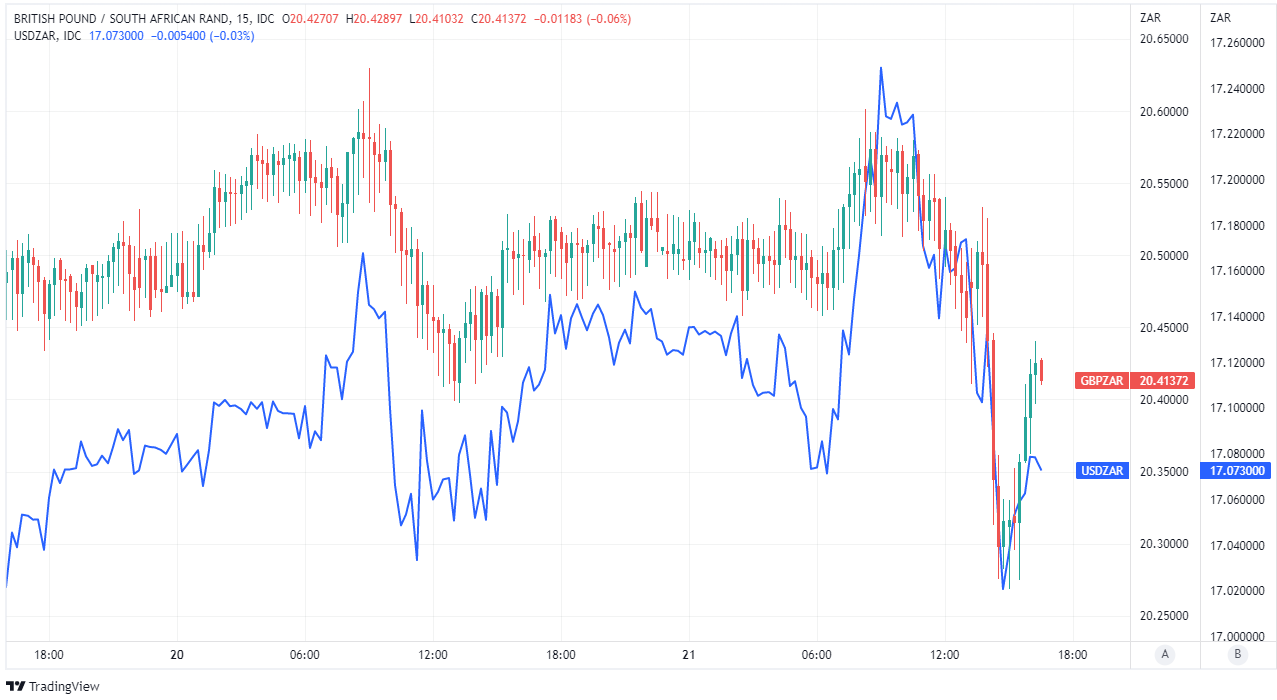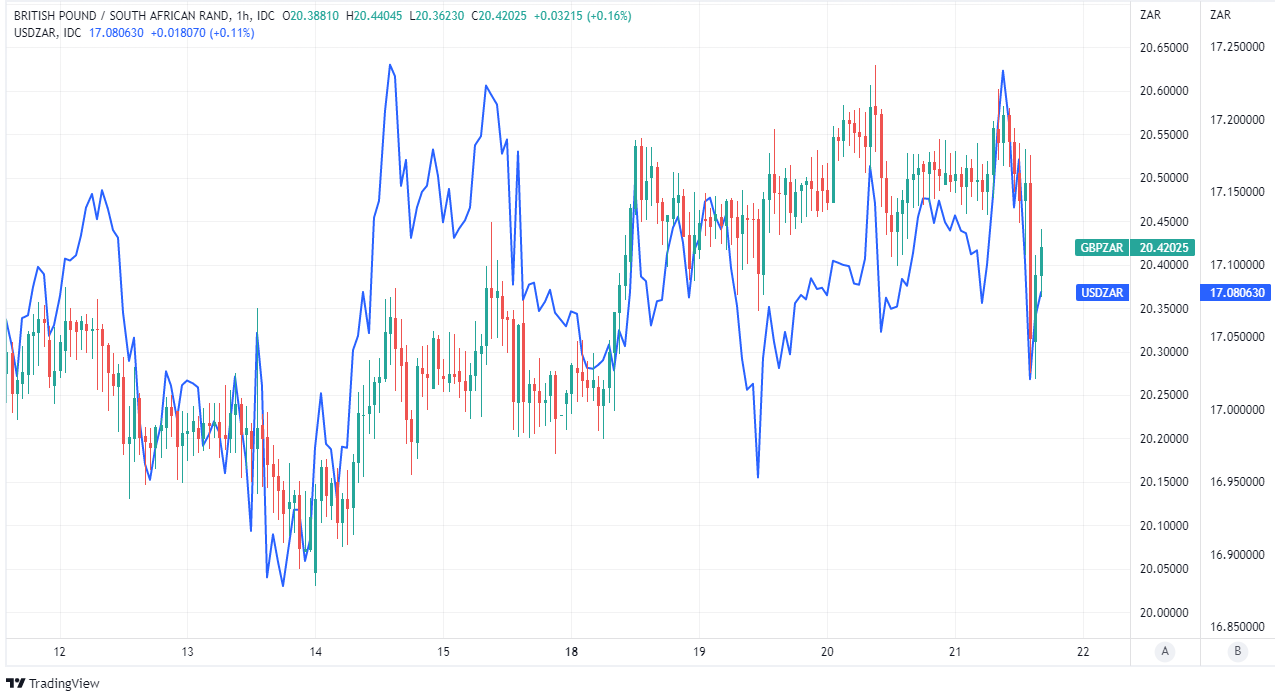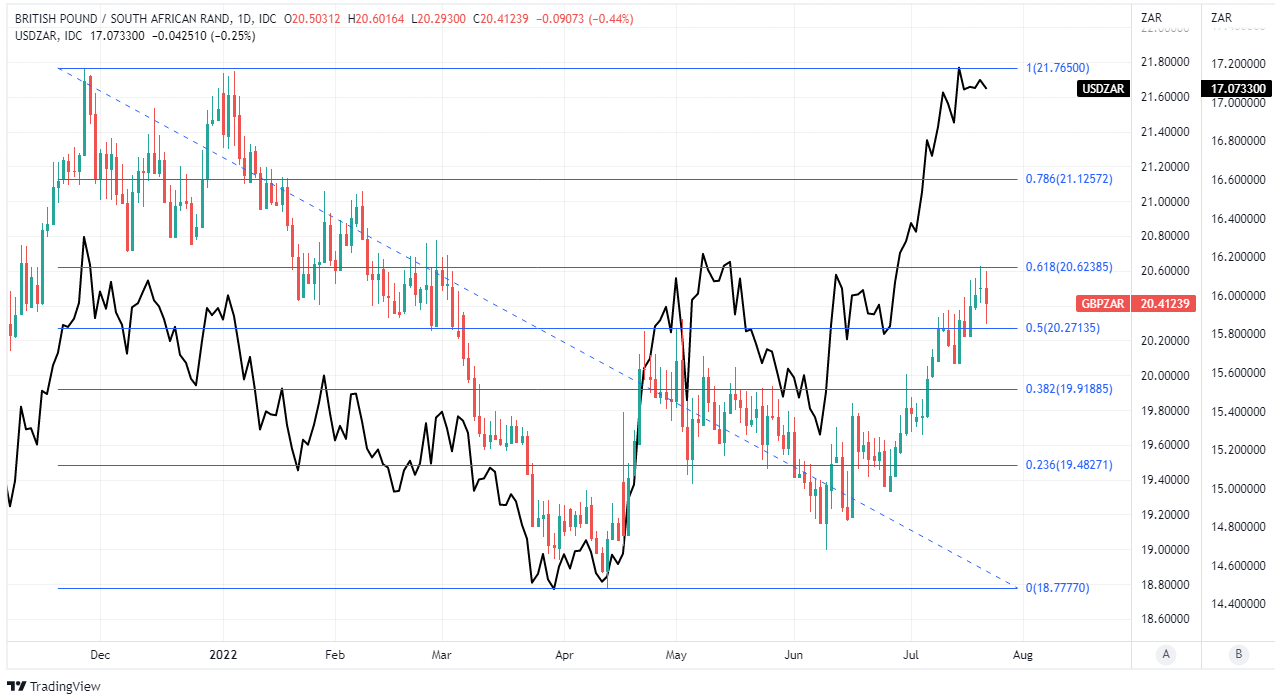Rand Jumps against Pound After SARB Hikes 75bp
- Written by: James Skinner
"The aim of policy is to stabilise inflation expectations more firmly around the mid-point of the target band and to increase confidence of hitting the inflation target in 2024," - Lesetja Kganyago, Governor of the South African Reserve Bank.

Above: Lesetja Kganyago, Governor of the South African Reserve Bank. Image © SARB
The Pound to Rand exchange rate was left struggling after its earlier rally was stymied when the South African Reserve Bank (SARB) announced its largest interest rate rise for two decades in a bid to contain rising inflation expectations.
South Africa's Rand rallied against all G20 currencies except the Polish Zloty on Thursday after the South African Reserve Bank raised its cash rate by 75 basis points, taking it up to 5.5%, in a decision that surprised many economists.
That was the largest interest rate rise from the SARB since shortly after the turn of the new millenium when the bank raised its benchmark for borrowing costs by a full percentage point on three separate occasions.
"Three members of the Committee preferred the announced increase. One member preferred a 100 basis points increase. Another member preferred a 50 basis point increase," the SARB said in its statement.
Above: GBP/ZAR shown at 15-minute intervals alongside USD/ZAR.
The decision came barely a month after the Federal Reserve (Fed) lifted U.S. rates by 75 basis points in an outcome which may have led markets to expect that a similar move could be seen in South Africa, although the markets stopped short of fully pricing this outcome.
Thursday's decision was aimed at containing recent increases in expectations for future inflation rates and warding off additional price pressures that could otherwise materialise through further currency depreciation, which has been a contributing driver of South African inflation lately.
"Alongside currency depreciation, other risks to the inflation outlook, such as increased food and fuel prices, have been realised, pushing up unit labour costs and expectations of future inflation," the SARB said in its statement.
"In this uncertain environment, monetary policy decisions will continue to be data dependent and sensitive to the balance of risks to the outlook. The MPC will seek to look through temporary price shocks and focus on potential second round effects and the risks of de-anchoring inflation expectations," it added.
Above: GBP/ZAR shown at hourly intervals alongside USD/ZAR.
But the SARB did also raise its forecasts for domestically generated inflation while expressing concern about the trajectory of expectations on Thursday.
"The aim of policy is to stabilise inflation expectations more firmly around the mid-point of the target band and to increase confidence of hitting the inflation target in 2024. Guiding inflation back towards the mid-point of the target band can reduce the economic costs of high inflation and enable lower interest rates in the future," the bank said in partial conclusion of its policy statement.
The new forecasts suggest that South Africa's core inflation rate would rise to 4.3% this year and 5.1% next year before falling back to 4.9% in 2024, implying that it will rise and remain above the 4.5% mid-point of the three-to-six percent target band for some time.
That could mean the SARB is now more likely to continue lifting its interest rate during the months ahead, although it gave no details on Thursday about the likely path of the cash rate up ahead after saying previously that "gradual normalisation" was most likely through 2024.
South African inflation rose from 6.5% to 7.4% in June but the rate of core inflation, which excludes energy and food items from the basket under the microscope, rose by a lesser extent from 4.1% to 4.4%.







